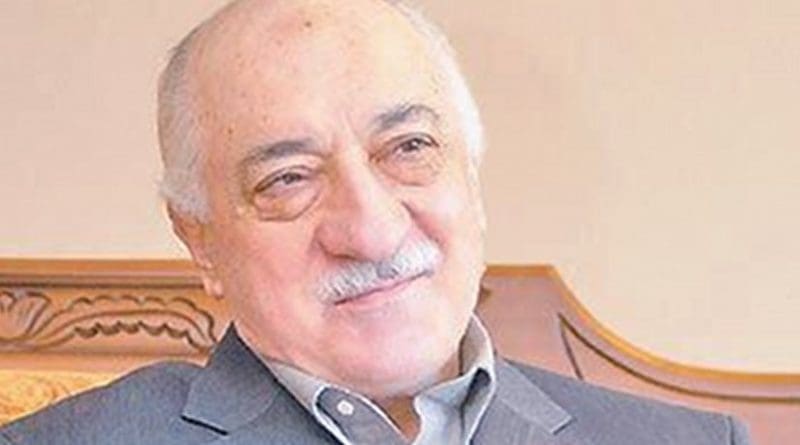Turkey: Gülenists Give Their Version Of Coup
By EurActiv
By Georgi Gotev
(EurActiv) — A report published by an organisation close to the movement of Fethullah Gülen, the Turkish preacher accused by Ankara of being the mastermind of the failed 15 July coup, questions the official story and highlights many abuses for which the coup appears to be a pretext.
The 52-page report, The failed military coup in Turkey and the mass purges (PDF), is published by the website Dialogue Platform, which calls itself “A platform of Hizmet inspired dialogue.” Hizmet means “service” and was the official name of the Gülenists, until Ankara started to call the organisation FETO, which stands for “Fethullah terrorist organisation.”
The Turkish authorities have criticised Western countries for taking too long to realise the danger Gülenists represent, and for being a “haven for terrorists”.
Elmar Brok (CDU), a key German MEP close to German Chancellor Angela Merkel, recently said that he had taken a different view on Gülen-related issues, following a visit to Turkey.
Commission First Vice President Frans Timmermans told a Flemish magazine that in many contacts he has had over the world that some people of the Gülen movement may be involved in the coup attempt.
As EU societies indeed seem confused, the report appears to be addressed to a Western audience that has been exposed to Ankara’s messages, but hasn’t heard from those accused.
“The official story told by the government about the failed coup attempt is that a group of military officers who are Gülen-sympathisers learned that they would be dismissed following the upcoming August meeting of the High Council of the Military, and they staged a coup to save themselves and gain control of the government. The official story is not based on an investigation, evidence, or a court verdict, and it leaves many questions unanswered,” the report says.
The report recalls that on the night of the coup attempt, President Recep Tayyip Erdoğan said: “This uprising is a gift from God to us because this will be a reason to cleanse our army.”
The report claims that Erdoğan is using the failed coup as a golden opportunity to completely re-engineer the military structure, including the education of cadets to bring the military under his tutelage, and furthermore to completely silence all opposition to his rule, and to accelerate the persecution of the Hizmet movement and confiscate private property owned by Hizmet sympathizers.
The report refers to experts who argue that it is objectively very unlikely that the driving force of the coup attempt were Gülenists.
Atatürk’s legacy
“A more plausible account provided by independent observers says that the attempt had a much broader base, including hard-line Kemalists and neo-nationalists,” the report says. Kemalists, who struggle to keep the secular legacy of Mustafa Kemal Atatürk, the founder of the modern Turkish state, have their power base in the army.
The report says that Erdoğan undermined key elements of Atatürk’s legacy, such as the Western orientation of the country and the separation of powers, but the activity that was the most offensive was the mixing of religion and politics. “It is probably safe to say that the vast majority of the officer corps elite either dislike or outright hate Erdoğan,” the report claims.
According to the report, Erdoğan did not organise the coup attempt, but was informed of and expected it, while his allies moved to cripple it and turn it into an opportunity for the President to emerge as a hero.
Regarding Gülen himself, the publication stresses that the self-exiled preacher swiftly condemned the coup, and in the early hours of the putch, an organisation that speaks on behalf of Gülen, called Alliance for Shared Values, also condemned it. A series of Gülen interviews are quoted, from which it becomes clear that he doesn’t exclude some of his supporters to be involved, but that he hasn’t had authority over them.
Svante Cornell, Director of the Central Asia-Caucasus Institute and Silk Road Studies Program of Johns Hopkins University, is quoted as saying that no one believes that Gülenist officers had risen to the ranks of three- or four-star generals. Thus, he argues that while it is very likely that Gülenist officers were involved, it is equally obvious that they could not have carried this out on their own. The more senior generals apparently involved do not seem to have any Gülenist affiliations, Cornell is quoted as saying, and that “the coup may have been carried out by an unholy alliance between a faction of old-school Kemalist and Gülenist officers”.
Apart from many accounts of post-coup purges in Turkey, the silencing of media and academia, as well as torture and expropriation of property and businesses, the report lists many cases of abuse, harassment, arson and damaged property against presumed Gülenists in Western countries, such as France, the Netherlands, Belgium and others.
Gülenists appear to be well-integrated in many countries in Western Europe and have a good reputation. But the report points out that now these people fear for their security and their lives.
Of all EU countries, only Bulgaria seems to treat the Gülenists as a terrorist organisation. At least seven alleged Gülenists have been returned from Bulgaria to Turkey, without being able to claim asylum or international protection.
“If world leaders and international organisations do not take action, President Erdoğan will completely eliminate a peaceful civil society movement, and in the process will establish totalitarian control that makes it impossible to oppose him through democratic means,” the report concludes.

